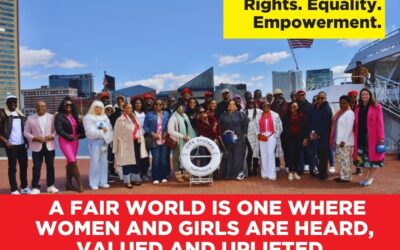Former chairman of the Economic and Financial Crimes Commission (EFCC), Mallam Nuhu Ribadu yesterday gave a mind-boggling revelation of how the nation’s politicians have plundered its wealth. He said over $10 billion was being freighted from the country to foreign countries by corrupt governors and local government chairmen as soon as they get their funds from federation account. This revelation came as the Nobel laureate also revealed that he had formed a new political party to serve as a model for other political parties. He beckoned on people frustrated in other parties to join his party.
Ribadu, who was guest lecturer at the 13th Professor Wole Soyinka Lecture organized by the National Association of Seadogs (AKA Pyrates Confraternity) in Lagos on Tuesday said he instituted a money-tracking mechanism that would show how much money was being siphoned from the country by corrupt officials.
His words: “When I was the chairman of EFCC we had a money-tracking system that shows how money was being taken away from the country. Two or three weeks after getting their money from federal monthly allocation, these governors and local government chairmen stash away more than $10 billion in foreign accounts. Money meant for the development of the common people they claim to represent. We will not save our people but we have to save these ignorant Nigerians because they are no longer comfortable in those environments they went to invest the stolen funds.”
In his lecture entitled: Nigeria At 50 : Crisis of Nation, Ribadu lamented that the history of the country was that of decline, sadness and tragedy saying certain steps must be taken to rescue the country from disintegration.
“Nations are like living organisms. If they are nourished with a diseased breast, the result varies in the dimensions of birth defects, but just as in science so it is in nation-building; you cannot plant cassava and hope to reap cocoyam.
“Nigeria’s failing scores often lead many of our compatriots, out of frustration, to seek comfort in some absurd resolution like the balkanization of our nation. However, for all their imperfections, some nations at the brink of a rupture have been able to survive on account of dogged will for collective redemption and with the opportunity of an imaginative leadership,” he added.
Ribadu illustrated his point with the examples of two African nations both in the eastern region, Tanzania and Somalia.
His words: “Think first of the complexity of Tanzania in terms of its ethnic diversity of about 175 ethnic groups and religious pluralism—a good balance between Christians and Muslims. Not to idealize the country, and in spite of the usual strains and pains of nation-building, is it not surprising to us that it remains the most stable and peaceful land in that region?
“The simple example from the world of fashion teaches us that sometimes the shoe doesn’t quite fit well. It will be foul logic, however, to trim the foot to accommodate the shoes. Nations are ultimately works in progress and the challenge we face is to confront the problems honestly and courageously rather than sweep them under the carpet.”
The anti-corruption czar regretted that the boundless energies of the people, the enviable spirit of our youth and the lush resources of the nation’s environment have been wasted and abused, noting that it was embarrassing to see what was being offered the nation, the continent and humanity as the product of labour from the largest black nation on the planet.
“A nation that produced the likes of Chinua Achebe, Oladele Awojobi, Chike Obi, Bala Usman, Fela Anikulapo Kuti and Murtala Mohammed cannot agonise for lack of models. A nation that also threw up the examples of Ngozi Okonjo-Iweala, Oby Ezekwesili, Sefi Atta, and Adichie Chimamanda cannot be said to be deficient in super brands. Above all, however, the nation that produced the towering presence of Wole Soyinka will lose a rational argument if it pleads the absence of heroes as the basis of the failure of Africa’s largest state,” he added.
On the solution to Nigeria’s problems, Ribadu said there was urgent need for infrastructure renewal in the country by way of eliminating all laws that inhibit states and local governments from engaging in infrastructure development from railway to electricity and aviation.
Ribadu said what Nigeria needs today was to aggressively support the model of public-private partnership to solve the country’s electricity and other infrastructure deficits.
Meanwhile, the celebrant, Professor Wole Soyinka, who just clocked 76, said he had formed a new political party known as the Democratic Front for Peoples Federation, adding that the efforts before now had been thwarted by the former INEC chairman, Prof. Maurice Iwu.
Soyinka threatened to withdraw his membership of MEND as an observer if the organization refused to be focused and address salient issues that would move the region forward.
By OLUWOLE FAROTIMI, Lagos
The Sun, Wednesday, July 21, 2010

![[PRESS RELEASE] AFFIRMATION OF EMERGENCY RULE IN RIVERS STATE THROUGH “AYES AND NAYS”](https://www.nas-int.org/wp-content/uploads/2025/03/National-Assembly-Ayes-and-Nays-400x250.jpeg)

